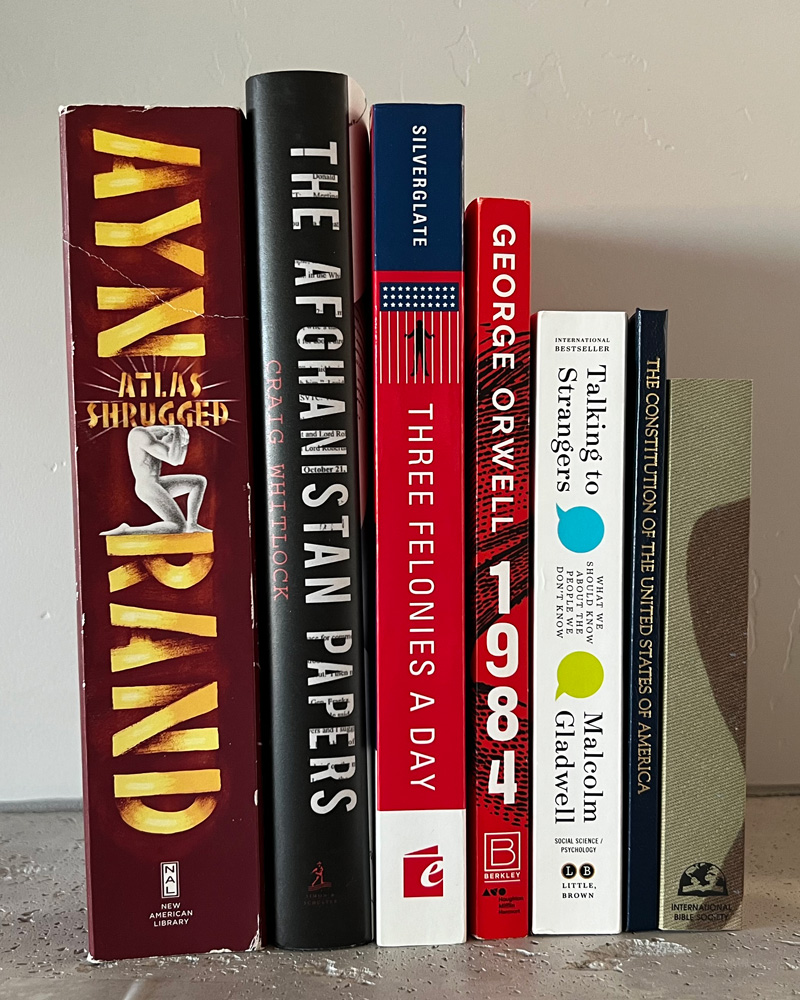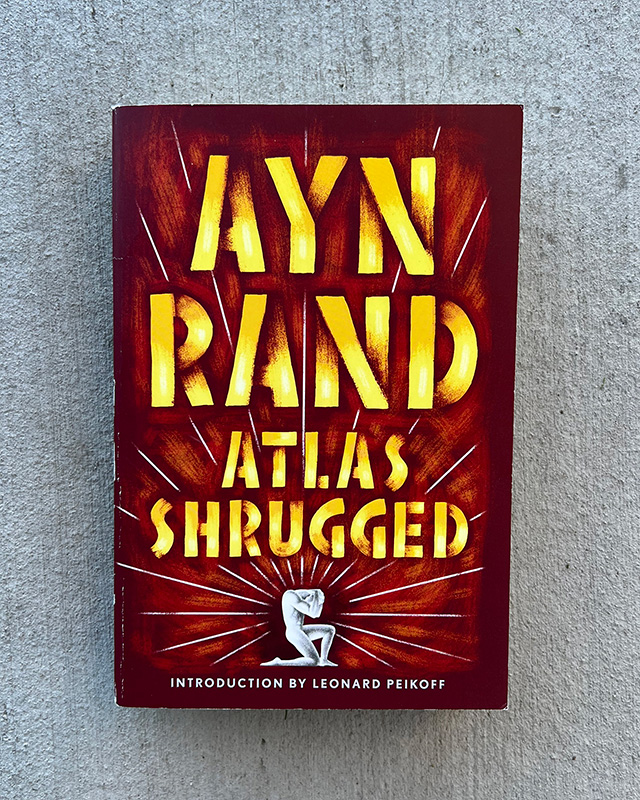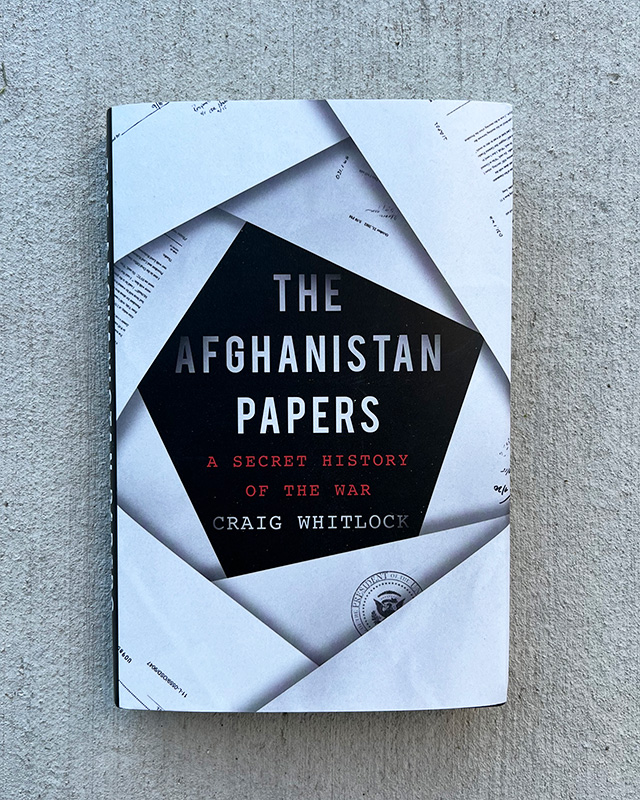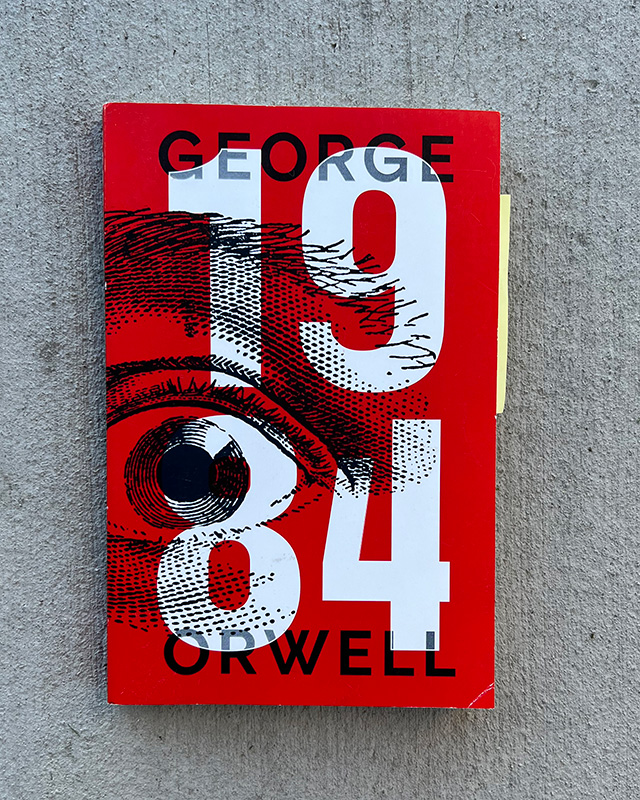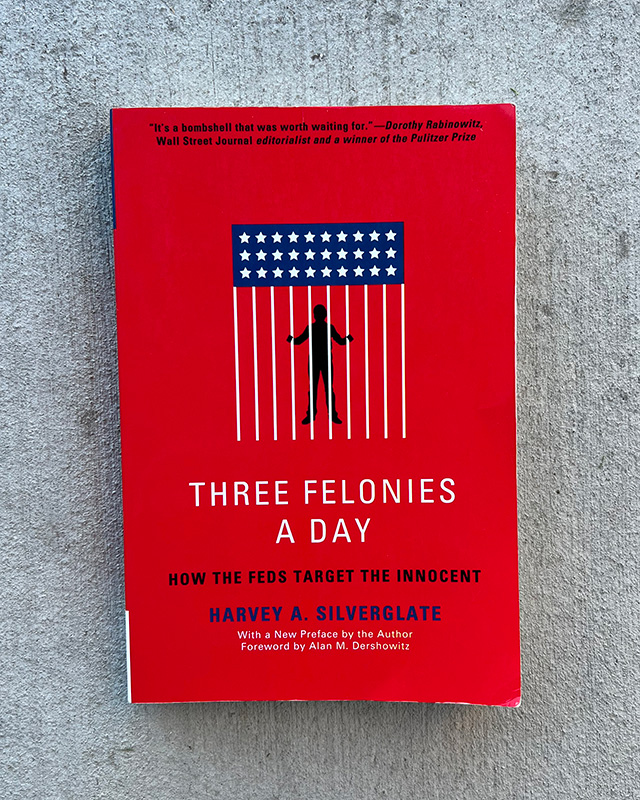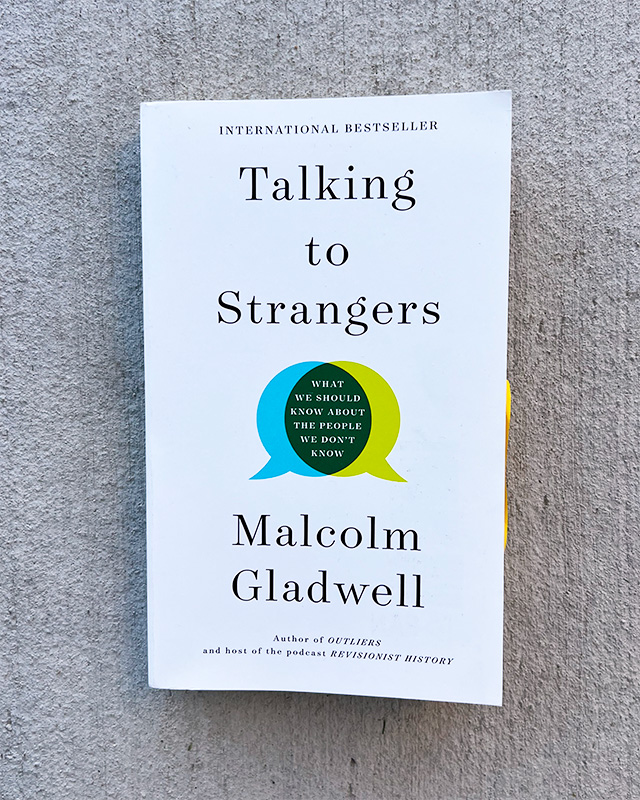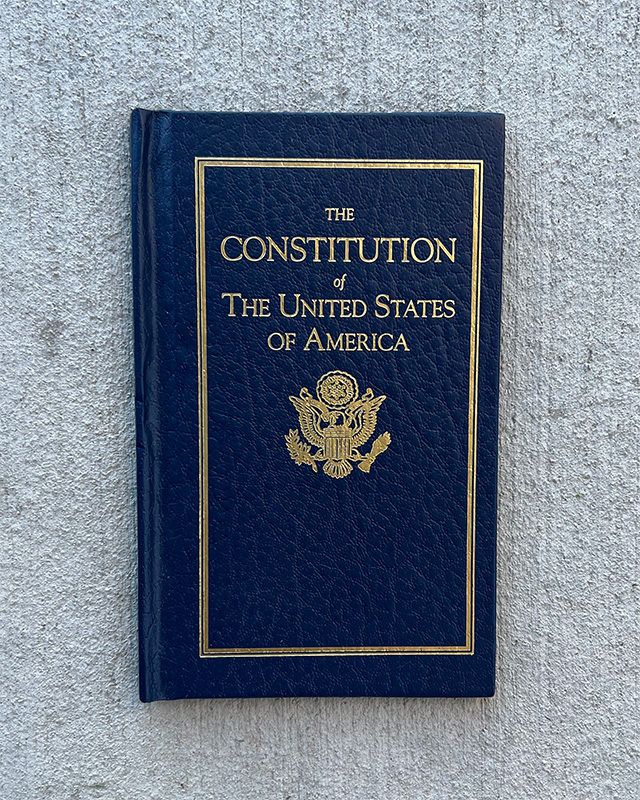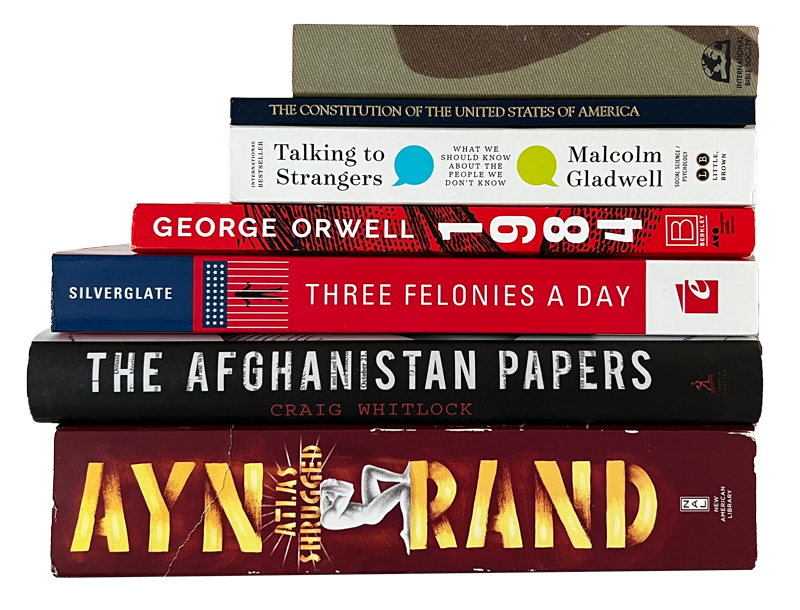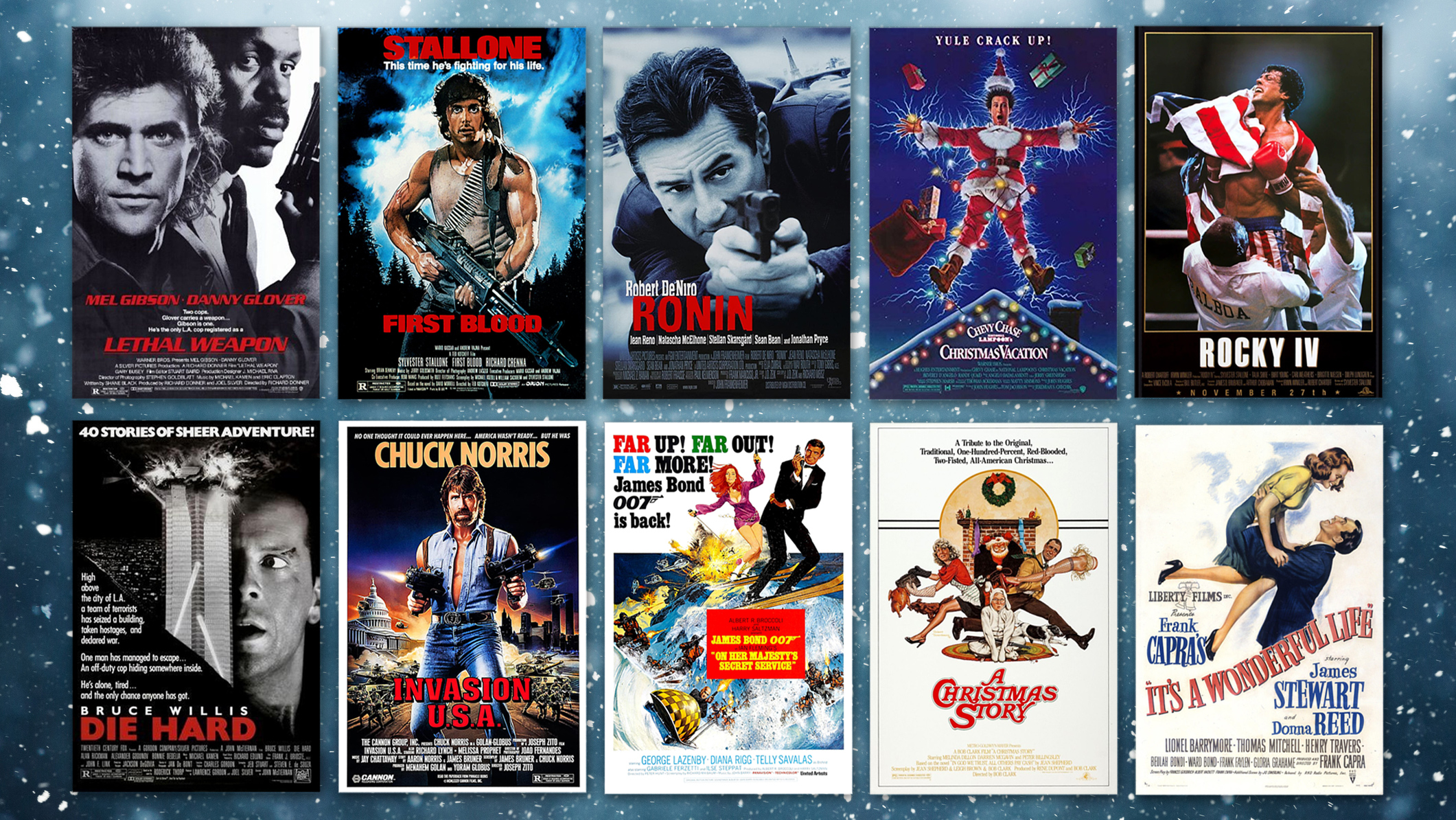JACK CARR BOOK CLUB
October 2021
October 2021 Reading List
The October 2021 reading list is a bit different than usual. Included are seven selections I recommend that all Americans read by the end of the year. In an effort to encourage thoughtful and respectful discourse in the marketplace of ideas, these seven selections are timely and important reading for all of us. They have also all been featured on previous monthly reading lists at some point over the past two years. You can find past reading list selections on the blog section of my website.
Happy reading!
October 2021 Reading List Selections:
- Atlas Shrugged by Ayn Rand
- The Afghanistan Papers by Craig Whitlock
- Nineteen Eighty-Four by George Orwell
- Three Felonies a Day by Harvey A. Silverglate
- Talking to Strangers by Malcolm Gladwell
- The Constitution of the United States of America
- Holy Bible
BLADES, BOOKS, AND BULLETS!
Atlas Shrugged by Ayn Rand
“Who is John Galt?” With those immortal words, so begins Ayn Rand’s novelization of her philosophy of Objectivism in Atlas Shrugged, a work that continues to influence how I live and write today. The theme of the novel, according to its author, is “the role of the mind in man’s existence.” The heroes of the story understand the mind, and the role of logic and reason in high achievement. She writes in the afterword: “My philosophy, in essence, is the concept of man as a heroic being, with his own happiness as the moral purpose of his life, with productive achievement as his noblest activity, and reason as his only absolute.”
First published in 1957, it is without question one of the most profound and impactful novels of the 20th century. Every American needs to read this book. You may even notice some interesting parallels to today’s reality. Taking it a step further, anyone who reads Atlas Shrugged and takes the time to internalize and conceptualize its themes, will move forward as a stronger, more productive citizen. I’d also recommend studying Ayn Rand as you start your reading journey. Where she came from and how she formed the basis of her philosophy is just as important as the plot and storyline. While I was in BUD/S, I went to a small independent theater in San Diego to see Ayn Rand: A Sense of Life. That documentary is an excellent place to begin. It is valuable to read Atlas Shrugged at different stages of life; high school, college, once in the private sector, and again after one has gained wisdom through experience and adversity. Ayn Rand lived her life to the fullest. The gift she left all of us is the example and ability to do the same.
The Afghanistan Papers by Craig Whitlock
Craig Whitlock is a three-time Pulitzer Prize finalist who has specialized in reporting on national security issues for The Washington Post since 1998. Since 2001, he has covered the Global War on Terrorism as a foreign correspondent, Pentagon reporter, and national security specialist.
His new book, The Afghanistan Papers: A Secret History of the War, asks and answers the question every American is asking in the wake of the chaotic withdrawal from Afghanistan: after 20 years of war, thousands of lives lost with even more suffering the physical and emotional trauma of the battlefield, and trillions of dollars spent – what went wrong in Afghanistan?
To gain access to what are now known as The Afghanistan Papers, The Washington Post had to sue the federal government twice under the Freedom of Information Act to force them to release unclassified interviews with 428 generals, diplomats, aid workers and Afghan officials. These documents along with 59,000 pages of Donald Rumsfeld’s memos obtained through another Freedom of Information Act lawsuit filed by the National Security Archive at George Washington University and 600 unclassified interviews with veterans of the war conducted by the Army’s Combat Studies Institute and another series of interviews with Bush White House officials from the Miller Center at UVA form the foundation of research for Craig’s book.
If you suspected that elected and appointed officials, diplomats, government bureaucrats and senior level military leaders have been lying to congress, the tactical level troops, reporters, and the American people about the war in Afghanistan for the past 20 years, this book provides you the truth – in their own words.
Nineteen Eighty-Four by George Orwell
“Every record has been destroyed or falsified, every book has been re-written, every picture has been repainted, every statue and street and building has been renamed, every date has been altered. And that process is continuing day by day and minute by minute. History has stopped. Nothing exists except an endless present in which the Party is always right.”
“War is Peace”
“Freedom Is Slavery”
“Ignorance is Strength”
“Ministry of Truth”
“Newspeak”
“Hate Week”
“Floating Fortress”
“. . .war had been literally continuous, though strictly speaking it had not always been the same war.”
“The more the Party is powerful, the less it will be tolerant. . .”
“No one dares trust a wife or child or a friend any longer.”
“. . .always there will be the intoxication of power. . .”
“A Party member lives from birth to death under the eye of the Thought Police.”
“. . .all the main currents of political thought were authoritarian.”
“Big Brother Is Watching You”
Three Felonies a Day by Harvey A. Silverglate
Three Felonies a Day by Harvey A. Silverglate is my most gifted book after Once an Eagle by Anton Myrer. Its premise is one that should frighten all Americans regardless of party affiliation; the average person wakes up, makes breakfast, goes to work, comes home, eats dinner, and goes to bed. Unbeknownst to them, throughout the course of that day, they have committed at least three felonies. A growing number of laws, statutes, and regulations have created an environment that allows the federal government to target anyone of their choosing. Laws are intentionally written in general and vague language so they can be interpreted broadly by those in power. Most laws require a law degree to decipher which is a departure from the original common law traditions upon which our country’s legal system was founded. The book was published in 2009. Its premise and lessons are even more relevant today. It is not a stretch to make the comparison to the “legal system” in place under Joseph Stalin’s reign of terror where his chief of the secret police, Lavrentiy Beria, famously stated, “Show me the man and I’ll find you the crime.” Most dissidents sent to the gulag were not in prison for their dissenting political views. Rather, they were tried and found guilty of breaking a host of other “laws.” Think this doesn’t happen in the United States? If so, you owe it to yourself and to future generations to read this book.
Talking to Strangers by Malcolm Gladwell
If you have been following along with my monthly reading list selections, you will know what an admirer I am of Malcolm Gladwell. When I put together the professional reading list for the Naval Special Warfare Center before leaving the SEAL Teams, all of Malcolm Gladwell’s books were on that list. His 2019 bestseller Talking to Strangers would most certainly have been on that professional reading list as well had it been published back then. What, you may ask, does a Galdwellian intellectual journey have to do with special operations? In short: everything.
Malcolm Gladwell is the author of The Tipping Point, Blink, Outliers, What the Dog Saw, David and Goliath, Talking to Strangers, and The Bomber Mafia. He is the host of Revisionist History, a podcast now in its sixth season. I have not missed an episode since it debuted in 2016. If you are not listening to it, subscribe today.
Talking to Strangers is a book I first read as a physical copy and then listened to in its audiobook format. The audiobook is not an audiobook as you may now be accustomed. It is more of a combination audiobook and podcast, much like Malcolm Gladwell’s latest, The Bomber Mafia, which I found makes for a richer, fuller listening experience.
Talking to Strangers was first published in September 2019. Less than a year later the country would be hit with COVID-19, civil unrest, and the most contentious election cycle in recent history, all of which we are still dealing with today. We would be a more polite, respectful, and thoughtful country if we all took a breath, put down our devices and spent time with Malcolm Gladwell in the pages of Talking to Strangers.
The Constitution of the United States of America
I firmly believe that every household in America should have a bound edition of the Constitution on the shelf. I shudder to think how many Americans and even how many of our elected officials have not spent time immersed in their pages. More worrisome still is how many have not studied them in depth. Will our children analyze these documents in school? You would be smart to assume they will not. That responsibility falls to us as parents. Having bound editions reinforces how important they are. Their ready availability online is not the same as owning physical editions. Buy them and keep them in a place of honor. How many elected officials see the Constitution as an obstacle in comparison to those who see it as the supreme law of the land clearly spelling out the limited powers of government?
Holy Bible
It seems like now might be a good time to take a breath and revisit the Golden Rule. Not exclusive to the Bible, the Golden Rule exists in multiple forms from various sources over the millennia. In a time when civil discourse is anything but civil, exacerbated due to the divisive nature of social media and encouraged through algorithms developed and perpetuated by companies that profit from the degeneration of respectful conversation on opposing viewpoints in the marketplace of ideas, it may be time to sit and ponder the wisdom of the Golden Rule…and put it into daily practice.

